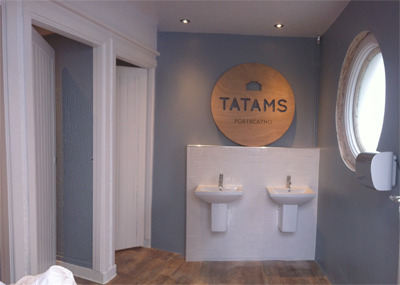Cheaper Housing Costs, Growing Incomes: A Prosperous Shared Future
 It is always good to be able to convey good news and I am delighted to be able to report encouraging progress in securing a new bus service for Portloe.
It is always good to be able to convey good news and I am delighted to be able to report encouraging progress in securing a new bus service for Portloe.
After I submitted my dossier highlighting the impact of the withdrawal of the 550/551 bus service I met with Cornwall Council officers to again make the case for Portloe. I am pleased to say that they listened and that a new daily bus service has been up and running through Portloe since the 29th September. A full timetable is on my website www.sarahnewton.org.uk
This isn’t the end of the campaign. Whilst welcome, the new service isn’t a through link to Truro. I will continue to press for a better bus services for Portloe, and for all my constituents.
As this fight continues it is worth remembering that, at the first meeting public meeting held to discuss the 550/551 bus service changes, Cornwall Council representatives claimed that they had no money and no options but to cut services. As I said at the time, pointing out the protected rural bus funding the Government has given to councils, this is far from the case. As we are all invited to attend Cornwall Council budget meetings to discuss what the Council claim are necessary cuts to services amounting to £196 million over the next four years, we should also bear in mind that, despite undoubted reductions in funding, Cornwall Council is still this year spending more or less what Cornwall County Council and the six district councils spent on services in 2007/2008.
 They have also passed down responsibility for some of those services to parish and town councils. Like so many local businesses, other public services and households since 2008, Cornwall Council needs to play its part in reducing the budget deficit. As pioneering private-public partnerships like Portscatho’s Tatam’s Café (see September’s article) demonstrate these challenges can often be overcome by new and innovative approaches to public service provision; achieving savings and improving services.
They have also passed down responsibility for some of those services to parish and town councils. Like so many local businesses, other public services and households since 2008, Cornwall Council needs to play its part in reducing the budget deficit. As pioneering private-public partnerships like Portscatho’s Tatam’s Café (see September’s article) demonstrate these challenges can often be overcome by new and innovative approaches to public service provision; achieving savings and improving services.
Recent weeks has seen less positive news in the form of the resurfacing of the ‘Mansion Tax’. Ed Miliband’s proposed new tax on family homes is meant to apply to homes worth over £2 million, but like any new tax would drag in more and more people over time. Indeed one Labour candidate has already argued for the tax to apply to all homes worth over £400,000. I am all for the wealthiest paying their fair share of taxes but the imposition of a new tax on people who, whilst living in desirable houses may not actually have that much income coming in every week, is deeply unfair.
I want the UK’s tax revenues to grow, so that there is more money available to fund the NHS and other vital services. However the way to achieve this increase is not by saddling people with new taxes, but by helping people and businesses grow their incomes, and correspondingly the size of their tax contributions. This is taking place under the Coalition – whilst income tax, fuel taxes and taxes on small business have been slashed tax revenues are actually increasing as a proportion of GDP. These tax reforms are also having a beneficial social impact, figures published in July by the DWP show that inequality in the UK is at its lowest point since the 1990’s.
 I am pushing for these increased revenues to be used to reduce one of the main costs working people face; housing. This summer I worked with independent poverty think tank the Joseph Rowntree Foundation to launch new research looking at how much people have to spend on the essentials of life. The findings show that the continued rise of housing costs over recent decades has hit those earning modest incomes very hard. Reducing housing costs would really help people to further grow their own incomes, to the benefit of all.
I am pushing for these increased revenues to be used to reduce one of the main costs working people face; housing. This summer I worked with independent poverty think tank the Joseph Rowntree Foundation to launch new research looking at how much people have to spend on the essentials of life. The findings show that the continued rise of housing costs over recent decades has hit those earning modest incomes very hard. Reducing housing costs would really help people to further grow their own incomes, to the benefit of all.
If we are to reduce housing costs for average and low income families we have first to look at the private rented sector, which provides homes for nearly 20{c8c3b3d140ed11cb7662417ff7b2dc686ffa9c2daf0848ac14f76e68f36d0c20} of the UK population. Rents have been rising for decades as demand for private rented properties has outstripped demand. The Government is seeking to turn this situation around through encouraging the creation of thousands of new rental properties through schemes like the £1 billion Build to Rent Fund (https://www.homesandcommunities.co.uk/ourwork/private-rented-sector). In Cornwall I continue to work with the Cornwall Residential Landlords Association to secure more high quality reasonably priced rented homes for my constituents. We are lucky to have some very community minded landlords in Cornwall setting a great example for the private rented sector in other parts of the UK.
As well as reforming the private rented sector it also is crucial to expand the socially rented sector, including what is popularly referred to as council housing.
Local authorities have now been set free to build more council houses. A measure I helped to introduce, self-financing, means that local authorities retain the rental income they receive from existing council house tenants and can top it up by borrowing to invest in existing and new homes. A £3.5 billion Affordable Homes Guarantee, which allows social housing providers to use a government guarantee to secure private investment in council housing, is further driving forward the delivery of new council homes. A new £23 billion affordable housing funding pot known as the Affordable Homes Programme 2015-18 will deliver more affordable homes. I am disappointed that Cornwall Council has to date been slow in applying for funding from the Programme and want the Council to utilise all the new tools now available to build many more genuinely affordable homes for local people, including new council houses.
 In the past concerns have rightly been raised about council houses in beautiful areas like the Roseland being bought under the Right To Buy scheme and then being sold off as expensive second homes, lost forever to the community. Reforms introduced in 2010 mean that Cornwall Council can apply for the Roseland to be designated a rural area under the Right to Buy schemes. All homes sold in such rural areas can only be sold onto genuinely local people at affordable prices. I continue to urge Cornwall Council to take this step and to ensure that all revenues from council homes being sold off are used to fund more council housing being built.
In the past concerns have rightly been raised about council houses in beautiful areas like the Roseland being bought under the Right To Buy scheme and then being sold off as expensive second homes, lost forever to the community. Reforms introduced in 2010 mean that Cornwall Council can apply for the Roseland to be designated a rural area under the Right to Buy schemes. All homes sold in such rural areas can only be sold onto genuinely local people at affordable prices. I continue to urge Cornwall Council to take this step and to ensure that all revenues from council homes being sold off are used to fund more council housing being built.
I also want to see Cornwall Council getting behind more Community Land Trusts. Community Land Trusts enable land to be bought and kept in community ownership in perpetuity, passed down through the generations. Houses are sold or rented to local people at a rate that is linked permanently to local incomes. The self-build scheme at St Just in Roseland is a great example of a Community Land Trust working well and I want to see many more such schemes in the future.

